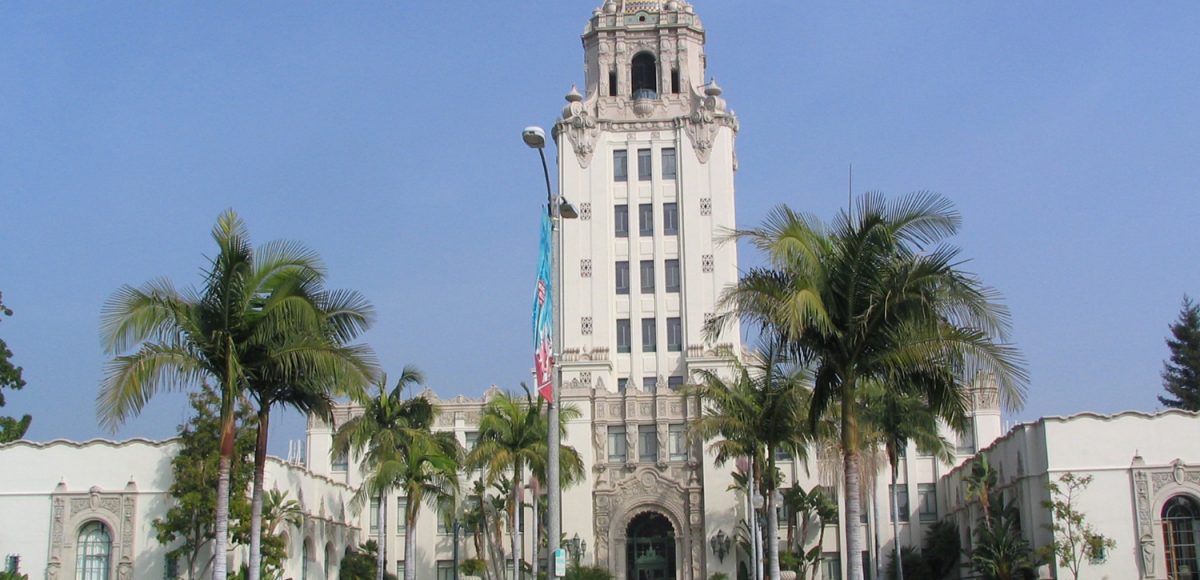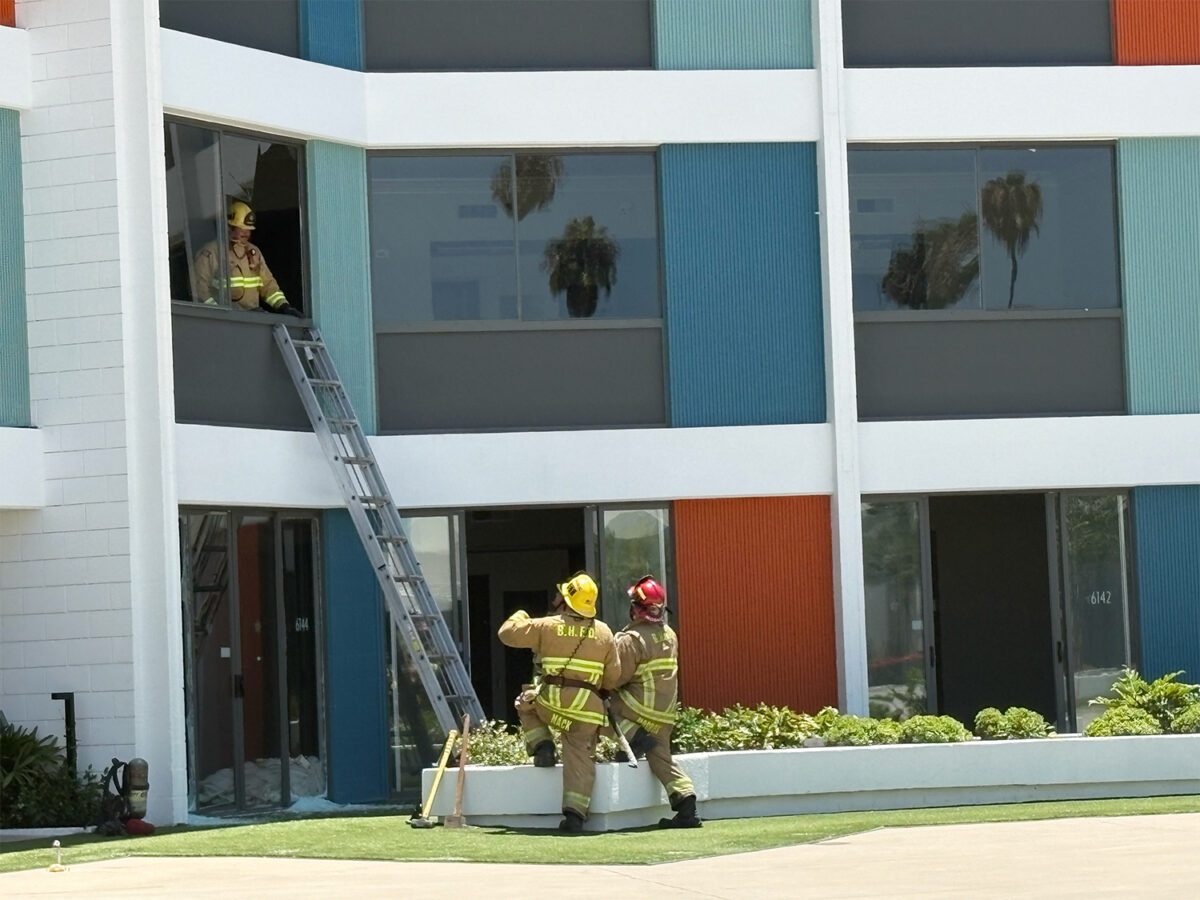The Beverly Hills City Council held a Study Session on July 21 in which members discussed enacting a residential rent subsidy and expanding the OpenBH program.
Rent Subsidy for Landlords and Tenants
Residential landlords and tenants will get a financial reprieve following direction from City Council to move forward with a rent subsidy.
“We certainly have concurrence that this is a program that we want to go forward with,” Mayor Lester Friedman said. “I do think we need to get the biggest benefit for the dollar. I think saving both a landlord and a tenant should be our priority.”
Originally proposed by Vice Mayor Bob Wunderlich last month, the July 21 Study Session marked the first time the Council formally discussed the item. Following discussion, Council directed staff to return with a cohesive plan to subsidize tenants and landlords unable to pay rent due to circumstances related to COVID-19. The City of Beverly Hills is a renter-majority City.
In March, the Council enacted a temporary moratorium on evictions for non-payment of rent by residential tenants impacted by COVID-19. Once the emergency ends, tenants have 12 months to pay back rent that was not paid during the declared emergency. However, if the tenant fails to pay rent when the emergency declaration is lifted, the landlord will have grounds to evict the tenant for failure to pay rent.
“Although City Council has enacted a residential moratorium on evictions, once the ordinance is lifted many residents will be faced with evictions because of their inability to pay rent,” states the July 21 staff report, which was authored by Director of Community Development Susan Healy Keene and Deputy Director of Rent Stabilization Helen Morales. “To ensure tenants maintain their occupancy and avoid eviction, the rent subsidy should cover rent as it becomes due once the urgency ordinance is lifted.”
The City Council must determine the amount to allocate for the subsidy as well as the source of funds. “I think we should add $1 million to this,” said Councilman John Mirisch. According to the staff report, $537,000 may currently be available to fund the subsidy.
Morales detailed multiple options for implementing the subsidy, including the staff recommendation to provide it to the 166 tenants who have filed the COVID-19 Form with the City. The total cost to the City would be $498,000 in such a scenario if the City offers a rent subsidy of $1,000 for three months per household. Another scenario would be to pay the total monthly rent that the tenant is unable to pay once the urgency ordinance is lifted, which would require $730,530 for a three-month rent subsidy.
In moving forward, the Council also expressed support for giving priority for residents with children who attend Beverly Hills schools, in addition to teachers within the school district. According to the staff report, as of May 2018, 42 percent of the total Beverly Hills Unified School District (BHUSD) enrollment resided in rent-stabilized housing.
“It supports our residential community,” said Vice Mayor Wunderlich. “I absolutely think this is the right thing to do.”
Expanding Businesses
Following last week’s direction from Council, staff detailed the possible expansion of the OpenBH program for businesses to utilize additional outdoor space. The program was created in response to the COVID-19 regulations that have significantly reduced revenue for businesses throughout Beverly Hills. Over 20 businesses have already availed themselves of the program, which allows the temporary expansion of services to adjacent areas such as parking lots, sidewalks, and metered parking spaces (parklets) through a Special Event Permit.
“We already are a pedestrian friendly City, and this is an opportunity for us to become more so,” said Vice Mayor Bob Wunderlich.
While stopping short of recommending staff further explore full street closures in various parts of the business district, the Council was united in helping businesses further expand into outdoor areas. Costs to the City include a combination of waived permit fees, loss of revenue from parking meters and paying for various traffic control measures. The program currently waives the $800 special event permit fee that each participating business is issued. To date, the City has waived $21,600 in special event permit fees.
“The program has received positive feedback from the business community and residents alike,” states the July 21 staff report, which was authored by Marketing and Economic Sustainability Manager Laura Biery and Special Events and Filming Coordinator Magdalena Davis.
Throughout the City, various businesses have been successful in creatively pivoting operations to utilize the OpenBH programs, including Matsuhisa, which now offers dining on its parking lot and Color Me Mine, which now offers pottery-making outdoors.
Mayor Lester Friedman underscored the importance of ensuring that augmented operations don’t bring more crowds who fail to abide by appropriate social distancing measures.
“With the resurgence of the COVID-19 virus, we really should be staying at home,” he said.
“This is a matter of public health and safety from that all else follows,” said Councilman John Mirisch, who emphasized the need for increased enforcement.
The Council heard from several members of the business community, the majority of whom were largely supportive of expanding the program as long as it did not include closing streets.
“It would be selfish of me to promote a policy which benefits me while negatively impacts my neighbors,” said Estiatorio Louka owner Vasili Kotsiovos. “Accessibility is key in allowing our business owners to operate and expand in ways that benefit each personally. Closing access to the street will make it more difficult for our community to reach and support us.”
“This would kill off an already fragile retail situation,” cautioned Carroll Custom owner John Carroll, in reference to the possible closure of Canon.
According to the staff report, there was not “overwhelming” support for a full street closure on South Beverly Drive and North Canon Drive among the business owners surveyed. “Businesses were however supportive of parklets or smaller scale expansions into the roadway that continued to preserve some parking and travel access,” stated the report.
“I wholeheartedly support this program and its expansion,” advocated Beverly Hills Chamber of Commerce CEO Todd Johnson. “We’re in a different world right now.”







